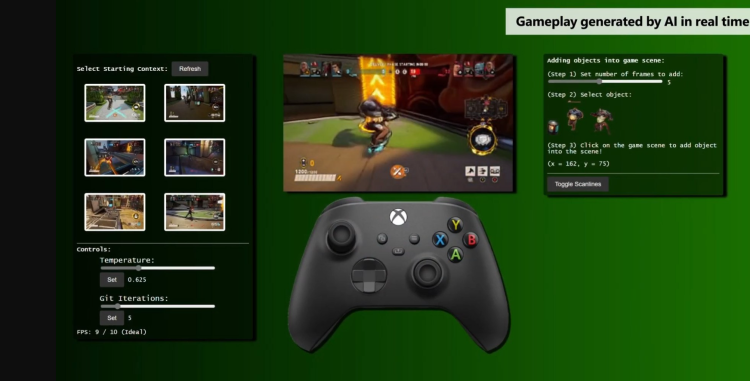
Xbox’s New AI Tool - Muse: A Blessing or a Curse for Game Preservation?
Xbox’s latest tool, Muse, aims to transform how classic games are revived, sparking both excitement and concern within the gaming community. As technology advances, games from past generations often struggle to remain relevant, leading to remakes and remasters. But Muse proposes an alternative – using AI to generate content that could breathe new life into these old titles.
However, this new direction raises several troubling questions. While AI’s potential to speed up development is appealing, critics argue that it risks undermining the artistic and creative input that makes classic games so beloved. Games like Final Fantasy 7 Rebirth demonstrate that successful remakes rely on human artistry, capturing the magic of the original while improving upon it. In contrast, AI-generated games, like those Muse is designed to create, might lack the unique charm that comes from human craftsmanship.
The tool has been trained on games like Ninja Theory's Bleeding Edge, and though Microsoft argues that Muse will be used to assist rather than replace developers, there is skepticism within the community. The core fear is that AI could eventually replace human designers and developers, leading to a uniformity in games that lacks the unique touch seen in titles crafted by actual people.
Beyond creativity, there’s also the ethical concern of AI’s reliance on copyrighted content. If Muse is drawing from existing games, does it cross a line? While Microsoft has promised transparency by offering Muse through its Azure AI Foundry, there’s still a risk that the tool could be misused by developers or lead to a mass proliferation of similar game styles.

Some, however, see Muse as a step forward in making classic games accessible without compromising their essence. For example, projects like Team Fortress 2 becoming open-source show that preserving the history of games doesn’t always require remaking them. In contrast, the fear is that Muse could diminish the originality and legacy of older titles by relying too heavily on AI-driven content creation.
Ultimately, while Muse has the potential to streamline game revival, its future use hinges on ensuring that it enhances, rather than replaces, human creativity. After all, classic games are more than just playable – they represent pieces of history, artistry, and the collective memories of players.

Comments